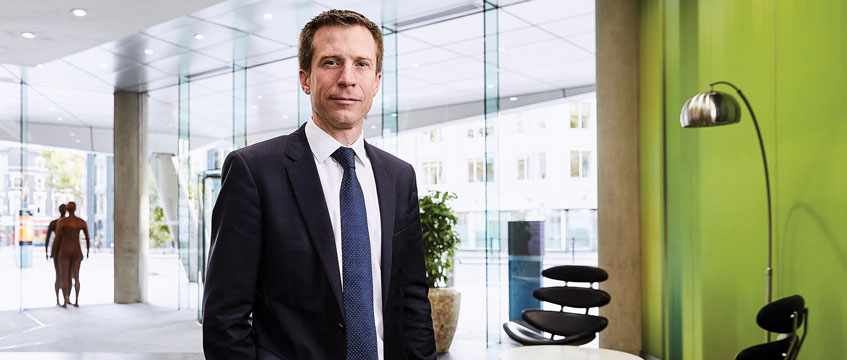The chief executive of British Land has found cause for cheer in the face of rising inflation, noting that it is encouraging top-tier investors to boost their real estate investments.
“What we’re seeing is big international investors looking to increase their allocation to real estate,” Simon Carter told EG as the FTSE 100 REIT announced its full-year results for the year to 31 March. “There’s a rotation out of bonds – corporate bond yields are 3% and you can get a 4-5% yield on property plus an element of rental growth, so they see that as a much better inflation hedge.”
And, although industry figures already back Carter’s words up – he cited a sentiment survey from trade body INREV that showed investors across Europe, North America and Asia Pacific all planning to lift their real estate allocation – British Land has also experienced the shift first hand.
“Anecdotally there’s our own activity,” Carter added. “We have done two big capital markets transactions with big international investors increasing their allocations – GIC at Paddington and AustralianSuper at Canada Water. AustralianSuper was quite a big day one investment but then much bigger investment over time into creating some wonderful real estate for the people of Southwark.”
The flipside is that rising build costs are having their own pressures on British Land’s pipeline – albeit a pressure that the chief executive said the company is well placed to withstand.
“We’re forecasting 8-10% [construction cost inflation] this year,” Carter said. “We’ve put ourselves in a good place – in our committed development programme, we’ve fixed 91% of the costs.”
Carter added that British Land benefited from a decision to “keep the momentum” going in its development pipeline during the Covid-19 pandemic.
“We didn’t down tools on schemes, so we were able to get to contract before the worst elements of cost inflation came through,” he said. “We’re doing that with great, tier one contractors who we’ve got long standing relationships with. We don‘t look to squeeze margins too much, it would be daft to do so – we want the contractors to be profitable and we want to deliver profits for our shareholders.”
Carter and colleagues now expect build cost inflation to “moderate but remain elevated” at 4-5% over the coming 18 months – helped by growing capacity in the construction market as some developers struggle to keep projects on track.
“We think raw material commodity prices will continue to increase, but at a slower rate, and then slightly offsetting that we expect [to see some developers] struggling to move developments forward because of that cost inflation, because of their inability to get to contract,” Carter said. “So the development pipeline is getting pushed back and we think there will be more capacity in the construction industry in 12-18 months.”
And, if inflation continues to soar, the British Land team is hopeful that rental growth will offset the worst.
“In the office market and urban logistics development, the best space in London is in really short supply,” Carter said. “If the development pipeline gets pushed back further, we think we can capture some good rents to offset any further cost inflation.
“One of the advantages of London development is that quite a lot of the cost is in the land. Only about 50% of total development cost is hard construction cost. So for every 5% higher build cost, you only need 2-3% extra on the rent.”
To send feedback, e-mail tim.burke@eg.co.uk or tweet @_tim_burke or @EGPropertyNews











